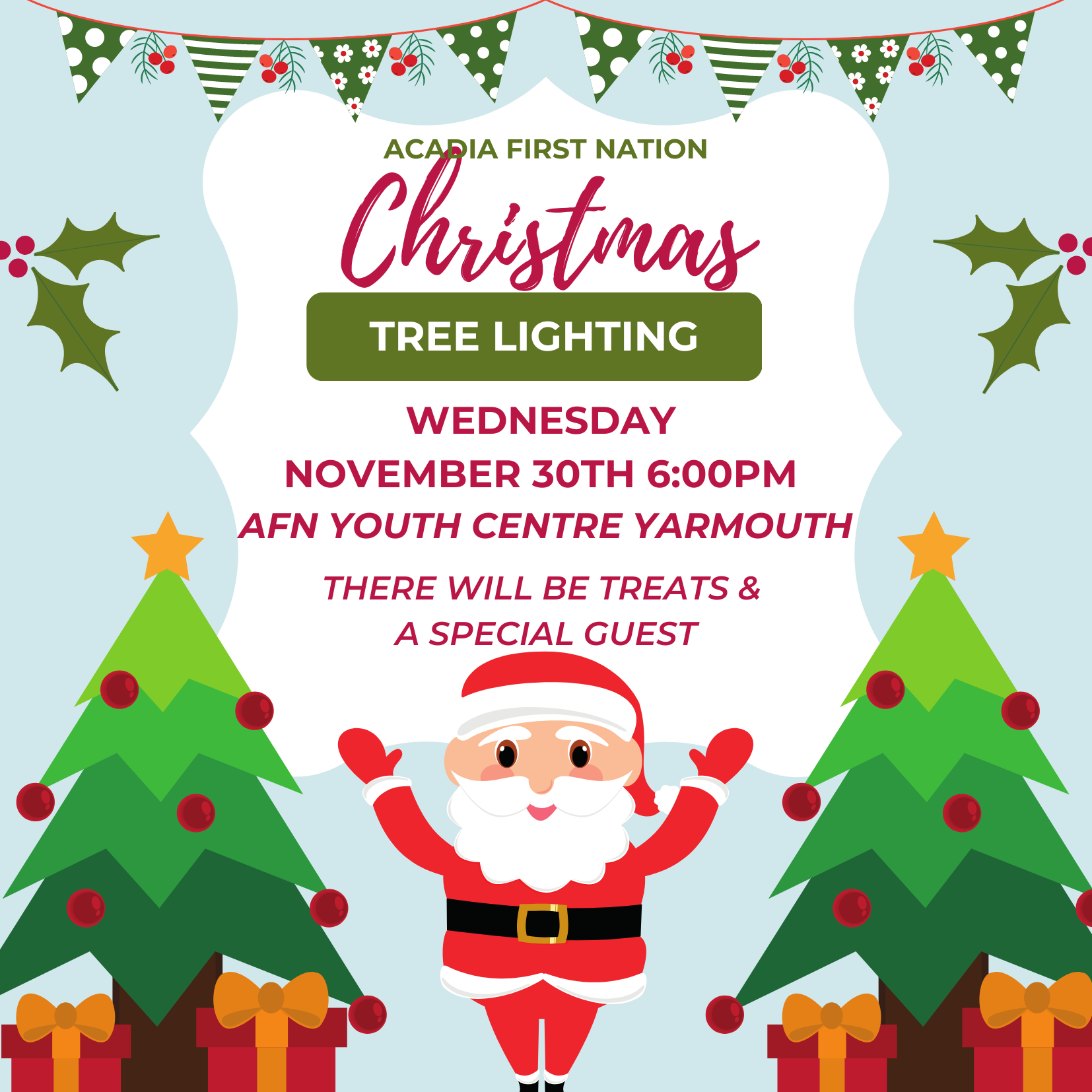News
Tree Lighting Ceremony | WFN Youth Centre | Yarmouth
- Published: November 15 2022 11:37

Free Skate | Mariners Centre | Yarmouth
- Published: November 15 2022 11:33

Christmas Dinner | Yarmouth Community
- Published: November 15 2022 11:29

Community Comprehensive Plan | Community Meetings
- Published: November 02 2022 14:13
Community Comprehensive Plan
Community Meetings
All Band Members are encouraged to attend as this is a plan that is developed by our community for our community. It is an open forum to discuss our past, present and future of Wasoqopa’q First Nation! What have we learned from our past, and how do we presently keep going in the right direction to sustain our First Nation for the FUTURE!! Community input is valued and much needed to make this a successful Community Comprehensive Plan!
When and Where??
Date: November 7, 2022 6pm – 8pm
November 21, 2022 6pm - 8pm
Shelburne Fire Hall in the Small Room
Date: November 8, 2022 6pm to 8pm
November 22, 2022 6pm to 8pm
Yarmouth Rose Purdy Centre
Date: November 12, 2022 10am – 12pm
November 26, 2022 10am – 12pm
Gold River Community Centre
Date: November 12, 2022 3pm – 5pm
November 26, 2022 3pm to 5pm
Halifax Area – Friendship Center in the Gordon King Room
Sonya’s Indian Tacos will be available (on November 7, 8, and 12th) and Door Prizes!!
Please let me know if you plan on attending so I can have the correct amount of Indian Tacos available!!
902-748-3871 or inbox me on Facebook Messenger
APPLICATION FOR HURRICANE FIONA RELIEF FUNDING | Off Reserve
- Published: September 27 2022 11:55
Please click here(252 KB) to download the APPLICATION FOR HURRICANE FIONA RELIEF FUNDING(252 KB)
